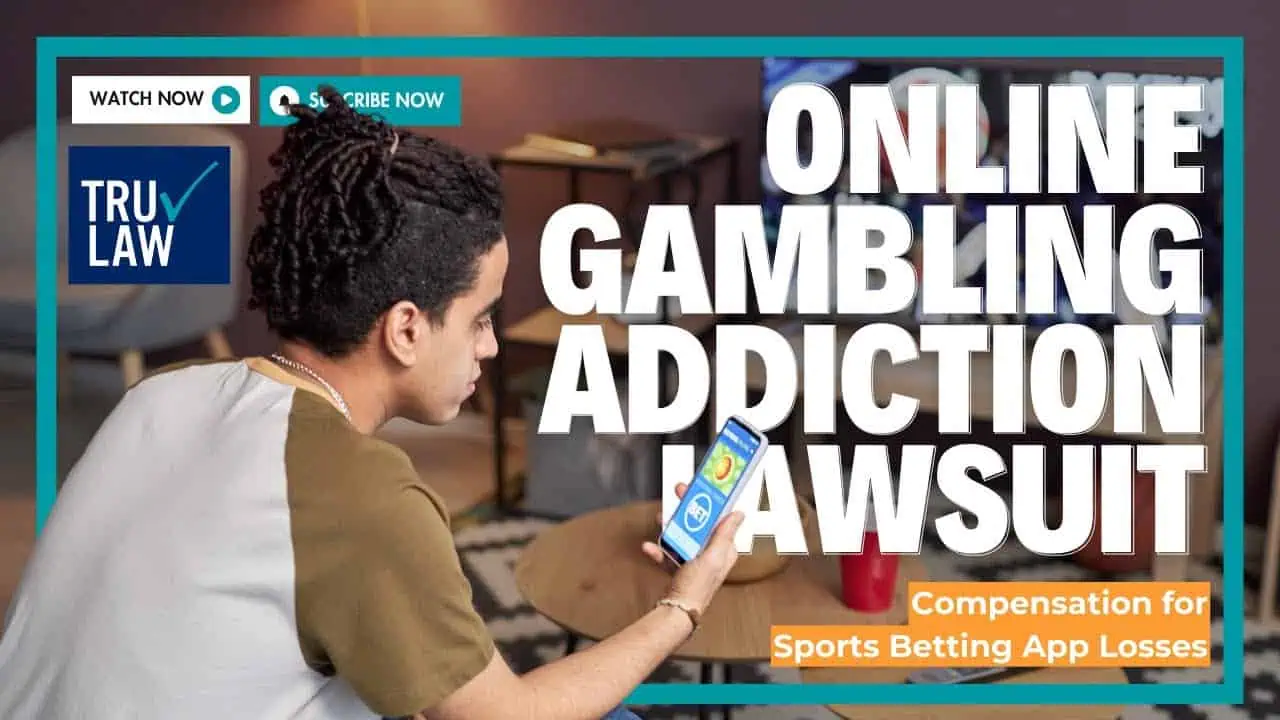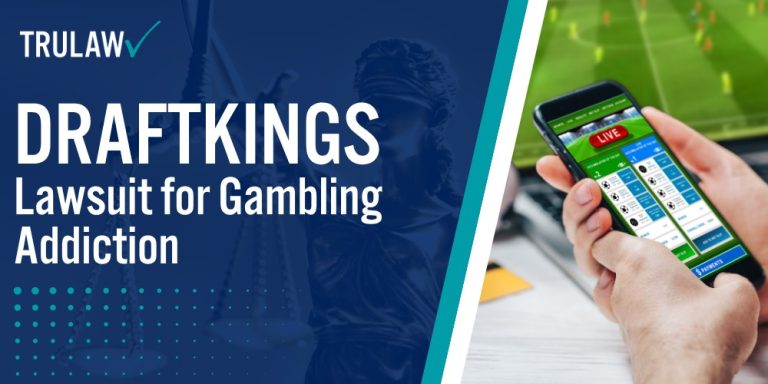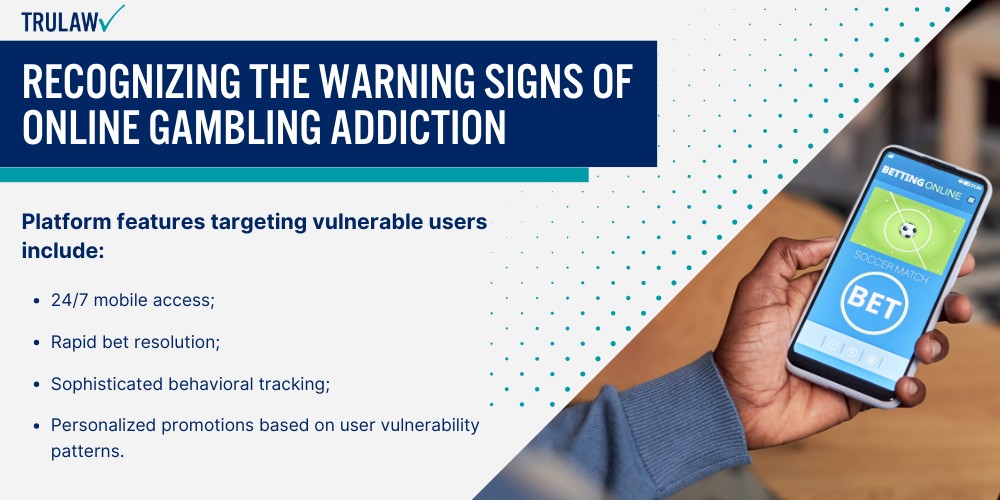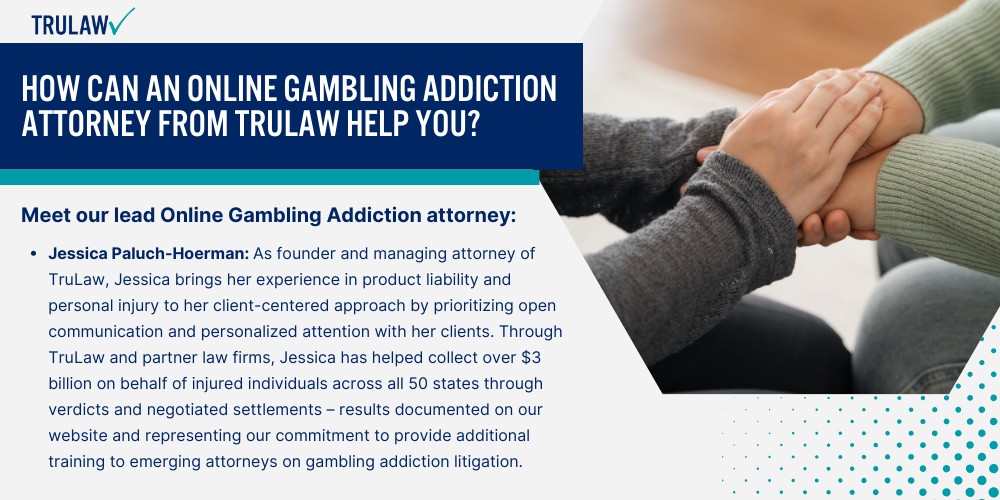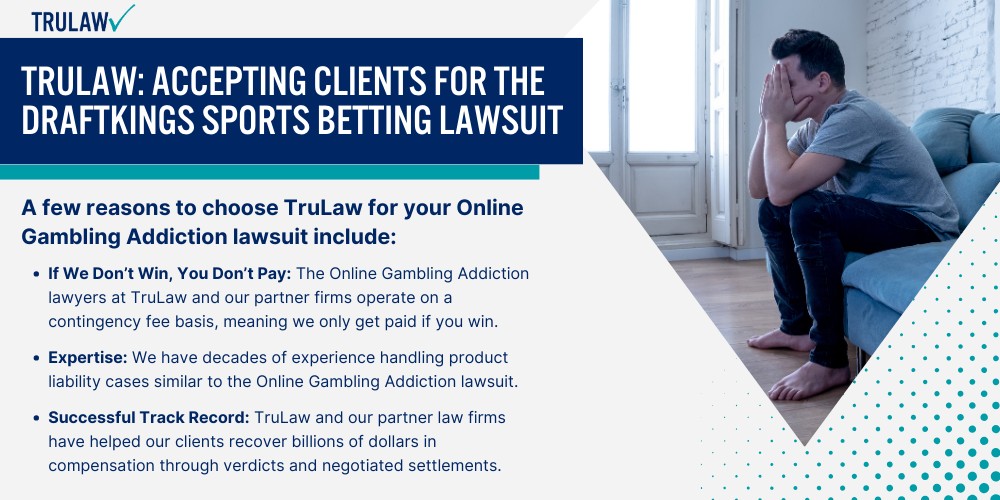Over the past five years, sports betting has become legal in some form in 39 states plus D.C. as of October 2025, with Missouri set to become the latest state to launch legal sports betting on December 1, 2025.
In April 2025, Pennsylvania residents Kenneth Macek, Matthew Harner, Avi Setton, Lionel Alicea, and Robert Walker filed a federal class action lawsuit in district court claiming DraftKings deliberately cultivated gambling addictions to boost profits.
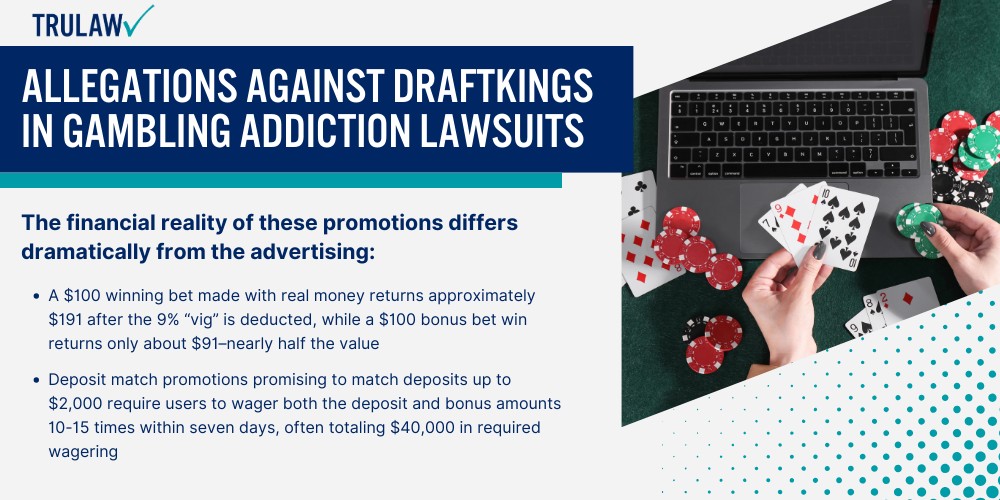
The complaint details how one plaintiff lost over $350,000 between 2020 and 2024 after DraftKings kept his account open despite his explicit request for closure in 2019 due to gambling addiction.
A separate Pennsylvania class action emerged from investigations led by Northeastern University’s Public Health Advocacy Institute, with plaintiffs claiming they lost thousands of dollars–two lost more than $50,000 within months–while developing gambling addictions as they attempted to meet promotional requirements buried in fine print.
Regulatory actions have reinforced these concerns.
The Massachusetts Gaming Commission fined DraftKings $450,000 in July 2025 for accepting illegal credit card-funded bets, marking the state’s largest sports betting penalty to date.
Connecticut’s Department of Consumer Protection, enforcing Connecticut’s laws, required DraftKings to return more than $3 million to 7,000 consumers who participated in deposit match offers between October 2021 and January 2023 after finding that consumers “misunderstood and in many cases were completely unaware of the terms of the promotions.”
Research from the National Council on Problem Gambling found that the rate of gambling problems among sports bettors is at least twice as high as among gamblers in general—a pattern consistent throughout the online gambling industry.
When sports gambling is conducted online, one study indicated that 16% met clinical criteria for gambling disorder while another 13% showed signs of problematic behavior.
Lawsuits against DraftKings center on specific business practices that plaintiffs claim were deliberately designed to create and exploit gambling addictions for profit.
These allegations include deceptive promotional offers with hidden terms, systematic targeting of vulnerable users including those on self-exclusion lists, and assignment of VIP hosts to high-loss customers showing addiction symptoms.
TruLaw gives immediate answers to individuals about their eligibility for gambling addiction litigation based on the details they share, helping you understand whether you qualify to pursue compensation for losses suffered.
Deceptive “Risk-Free” and “No-Sweat” Bet Promotions
The lawsuits detail how DraftKings’ heavily promoted “risk-free” and “no-sweat” bet offers are allegedly designed to mislead new users and other gambling-naive customers into depositing and wagering far more than they initially intended.
According to court documents, bonus offers advertised as “risk-free” actually require users to deposit and stake their own money, with losses refunded not as the promised award of cash but as “bonus bets”–credits with no cash value that expire quickly and cannot be withdrawn.
The financial reality of these promotions differs dramatically from the advertising:
- A $100 winning bet made with real money returns approximately $191 after the 9% “vig” is deducted, while a $100 bonus bet win returns only about $91–nearly half the value
- Deposit match promotions promising to match deposits up to $2,000 require users to wager both the deposit and bonus amounts 10-15 times within seven days, often totaling $40,000 in required wagering
- To receive a $1,000 bonus, users must deposit $5,000 and wager a certain amount totaling $25,000 within 90 days at odds of -300 or greater–approximately $276 per day on long-shot bets
- Failing to complete playthrough requirements results in forfeiture of both the bonus and the original deposit, leaving users with zero balance despite having earned winnings
Lawsuits allege that DraftKings deliberately buries these terms in confusing fine print while prominently displaying the promotional amounts in advertising.
The situation in Connecticut was partially settled when DraftKings promised to send refunds totaling more than $3 million to 7,000 individuals who took part in deposit match promotions between October 2021 and January 2023.
This followed an investigation by the state’s Department of Consumer Protection, which found that consumers:
“Misunderstood and in many cases were completely unaware of the terms of the promotions.”
If your losses accelerated after accepting DraftKings promotional offers with terms that differed from the advertising, you may be eligible to seek compensation.
Contact TruLaw using the chat on this page to receive an instant case evaluation and determine whether you qualify to join others in filing an Online Gambling Lawsuit today.
Targeting Users on Self-Exclusion Lists
Perhaps the most troubling allegations in the lawsuits involve DraftKings’ alleged practice of continuing to market to individuals who had taken explicit steps to prevent themselves from gambling.
Court documents detail how the platform allegedly targets users on state self-exclusion lists for addicted gamblers, as well as those who directly requested account suspensions or closures.
Multiple lawsuits cite specific examples where DraftKings failed to honor self-exclusion requests or continued marketing despite clear expressions of addiction.
Plaintiff Avi Setton asked DraftKings to close his DraftKings account in 2020 after recognizing he had a gambling addiction problem.
The company kept the account open, and Setton lost more than $350,000 over a period spanning more than five years between 2020 and 2024 before DraftKings finally closed the account in 2024–citing the original request from years earlier.
Similarly, Matthew Harner allegedly created gambling accounts with DraftKings and Golden Nugget despite being on Pennsylvania’s permanent casino self-exclusion list.
State regulatory actions have documented DraftKings’ repeated violations of self-exclusion protections.
New Jersey’s Division of Gaming Enforcement, enforcing state rules, fined DraftKings $10,000 in 2021 for sending promotional materials to 11 individuals on the self-excluded list, marking at least the third such violation in the preceding five years.
The company had previously been fined $2,000 in 2019 for similar violations and another $5,000 that same year when 54 customers on a cooling-off period were able to place wagers due to what DraftKings called a “software glitch” – violations of state regulations that should have triggered greater compliance and subsequent suit filings.
If DraftKings continued marketing to you or kept your account open despite self-exclusion requests or clear displays of gambling addiction, you may have grounds for legal action.
Contact TruLaw using the chat on this page to receive an instant case evaluation and determine whether you qualify to join others in filing a DraftKings Gambling Lawsuit today.
The VIP Program and Predatory Tactics
The most detailed allegations involve DraftKings’ invitation-only VIP program, which assigns personal hosts to high-loss customers showing exponential increases in betting activity.
Court documents from Dr. Kavita Fischer’s lawsuit provide a window into how the program allegedly operates to exploit addiction rather than prevent it.
After DraftKings upgraded Dr. Fischer to VIP status on December 8, 2022, her gambling accelerated dramatically.
Between January 1 and April 29, 2023, she made 446 deposits totaling $208,130 and placed approximately 60,327 bets, losing over $153,000 in just four months.
On some days, she made two dozen deposits within four hours–totaling around $15,000–as she chased losses.
During a six-day period, she made 147 deposits totaling $79,752.
The lawsuit details specific communications demonstrating DraftKings’ alleged knowledge of her addiction:
- In early January, Fischer emailed her VIP host saying she “should probably use (her) rational brain and switch to a table game or quit gambling completely” while asking for “some VIP love.” DraftKings allegedly responded by sending her $500 in casino credits the same day
- On March 21, she asked DraftKings for a loan to pay her mortgage, writing “Probably means I need to quit gambling soon also”
- Her VIP host responded with apparent concern, asking if she was “playing within your means/budget” and stating “Ensuring everyone is engaging in safe and responsible play is my number one priority”
- Over the following week, Fischer received six emails containing enticements to continue and increase her deposits and gambling before she even responded to the concerned message
The lawsuit alleges that DraftKings’ employees and leadership used user data (typically indicative of addiction) to intensify marketing through the VIP program, rather than intervene.
This data clearly showed:
“Exponential growth in the deposits, frequency, and in amounts and frequencies which only an addicted gambler could deposit and gamble.”
Rather than protecting vulnerable users, the complaint claims DraftKings:
“Intentionally targeted and preyed on Plaintiff with incentives, credits, and gifts to create, nurture, expedite, and/or exacerbate her addiction despite and/or because of their knowledge of her addiction.”
VIP hosts allegedly act as personal “friends” to high-loss customers, offering exclusive perks, cash bonuses, sports tickets, and personalized promotions (specifically timed to contact users during betting lulls or after major losses – precisely when vulnerable individuals are most susceptible to continued wagering).
The systematic nature of these practices suggests not isolated failures but a calculated business strategy to identify and retain the most financially vulnerable users.
If you were enrolled in DraftKings’ VIP program and experienced exponential increases in betting frequency and losses after being assigned a personal host, you may be eligible to seek compensation.
Contact TruLaw using the chat on this page to receive an instant case evaluation and determine whether you qualify to join others in filing an Online Gambling Addiction Lawsuit today.
